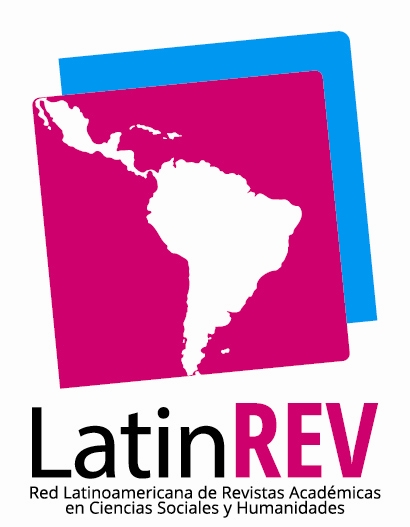Written production of academic and scientific genres at the university level. Building identity as a socialization process
Keywords:
English teaching, academic-scientific genres, identity building, written productionAbstract
There is no doubt about the relevance of the concept of genre both in the theoretical and applied fields since it facilitates the teaching-learning process of English for specific purposes in higher education. The Language Institute (Instituto de Lenguas) of the Faculty of Humanities (Facultad de Ciencias Humanas) of the Universidad Nacional de San Luis is carrying out a Teaching English Project addressed to all members of the university community (students, teachers, researchers, etc), whose main purpose is to develop written and oral abilities to promote the integration of beneficiaries into the international academic-research setting, through research publications, internships abroad and participation in research events. This study presents a teaching proposal focused on the progressive development of the written production of academic scientific genres, taking as a central axis the building of identity, seen as a socialization process.
Downloads
References
Byrnes, H. (2006). Advanced Language Learning. The contribution of Halliday and Vygotsky. London, England: Continuum.
Carlino, P. (2009). Escribir, leer y aprender en la universidad. Buenos Aires, Argentina: Fondo de Cultura Económica de Argentina.
Cascone, L. y Rezzano, S. (2013). La comprensión de definiciones en textos académicos en Inglés. Un estudio con alumnos universitarios argentinos. Buenos Aires, Argentina: Editorial Académica Española. Recuperado de http://www.abebooks.co.uk/9783659074721
Council for Cultural Cooperation. Education Committee. Modern Language Division, Strasbourg. (2001). Common European Framework of Reference for Languages: learning, teaching, assessment. Cambridge, England: Cambridge University Press.
Cubo de Severino, L. (2004). “Accesibilidad y aceptabilidad en los discursos académico-científicos: Uso y reconocimiento de predictores”. Revista de la Sociedad Argentina de Lingüística. Volumen (2), 67-78
Cubo de Severino, L. (2005). “Los manuales universitarios”. En L. Cubo de Severino. (Ed). Los textos de la ciencia. (pp. 325-336). Córdoba, Argentina: Editorial Comunicarte.
Dorronzoro, M. I. (2005). “Didáctica de la lectura en lengua extranjera en la universidad: Marco teórico y transposición didáctica”. En E. Klett. (Ed). Didáctica de las lenguas extranjeras: una agenda actual. (pp. 13-30). Buenos Aires, Argentina: Araucaria Editora.
Douglas, D. (2000). Assessing Language for Specific Purposes. United Kingdom: Cambridge University Press.
Dudley-Evans, T. and Jo, M. (1998). Developments in English for Specific Purposes. A Multi-disciplinary Approach. United Kingdom: Cambridge University Press.
Flowerdew, J. (1993). An educational or process approach to the teaching of professional genres. ELT Journal. Volumen (47), 305-316.
Flowerdew. J. and Peacock, M. (2001). Research Perspectives on English for Academic Purposes. United Kingdom: Cambridge University Press.
Flowerdew, J. (2004). Genre in the Classroom: A linguistic approach. En S. Johns. (Ed). Genre in the Classroom. (pp. 91-119). Cambridge, London: Cambridge University Press.
Gee, James Paul (1989). “Literacy, Discourse and Linguistics: Introduction”. Journal of Education. Volume (171), Issue 1, pp 5-17.
Gioia, S. (2017). “English for Science. Enseñanza del inglés en la universidad para la inserción en la comunidad científica internacional”. KIMÜN Revista Interdisciplinaria de Formación Docente. Año II, Volumen 3, Julio-Diciembre 2016. ISSN 2469-066X URL: http://ppct.caicyt.gov.ar/index.php/kimun/issue/view/603/showToc
Hutchinson, T. and Waters, A. (1987). English for Specific Purposes: A learning-centered Approach. United Kingdom: Cambridge University Press.
Hyland, K. (1999). “Talking to students: Metadiscourse in introductory course books”. Science Direct: English for Specific Purposes. Volume (18), Issue 1, pp. 3-26.
Hyland, K. (2003). “Genre-based pedagogies: A social response to process”. Journal of Second Language Writing. Volume (12), pp. 17-29.
Johns, A. (1997). Text, Role and Context: Developing Academic Literacies. San Diego, USA: Cambridge University Press.
Johns, A. (2002). Genre in the classroom. Multiple perspectives. New Jersey, USA: Lawrence Erlbaum Associates, Publishers.
Madden, C. y Myers, C. (1996). Theory and Practice: The EAP Context. ESP in Latin America. Fifth Latin America ESP Colloquium. CODEPRE (Consejo para el desarrollo del Pregrado). Llevado a cabo en la ULA (Universidad de Los Andes). Mérida, Venezuela.
Martin, J. R. (1992). English text: system and structure. Amsterdam, Netherlands: Benjamins.
Narvaja de Arnoux, E. (2004). La Lectura y la escritura en la universidad. Buenos Aires, Argentina: Eudeba.
Paltridge, B. (1996). Genre, text type and the language learning classroom. ELT Journal, Volumen (50), pp. 237-243
Paltridge, B. (1997). “Genre, Frames and Writing in Research Settings”. En Andreas H. Jucker (Ed). Pragmatics and Beyond New Series. Amsterdan, Netherlands: John Benjamins Publishing Company
Downloads
Published
Issue
Section
ARK
License
Copyright (c) 2018 Liliana Elizabeth Cascone, Silvia Gioia

This work is licensed under a Creative Commons Attribution 4.0 International License.






